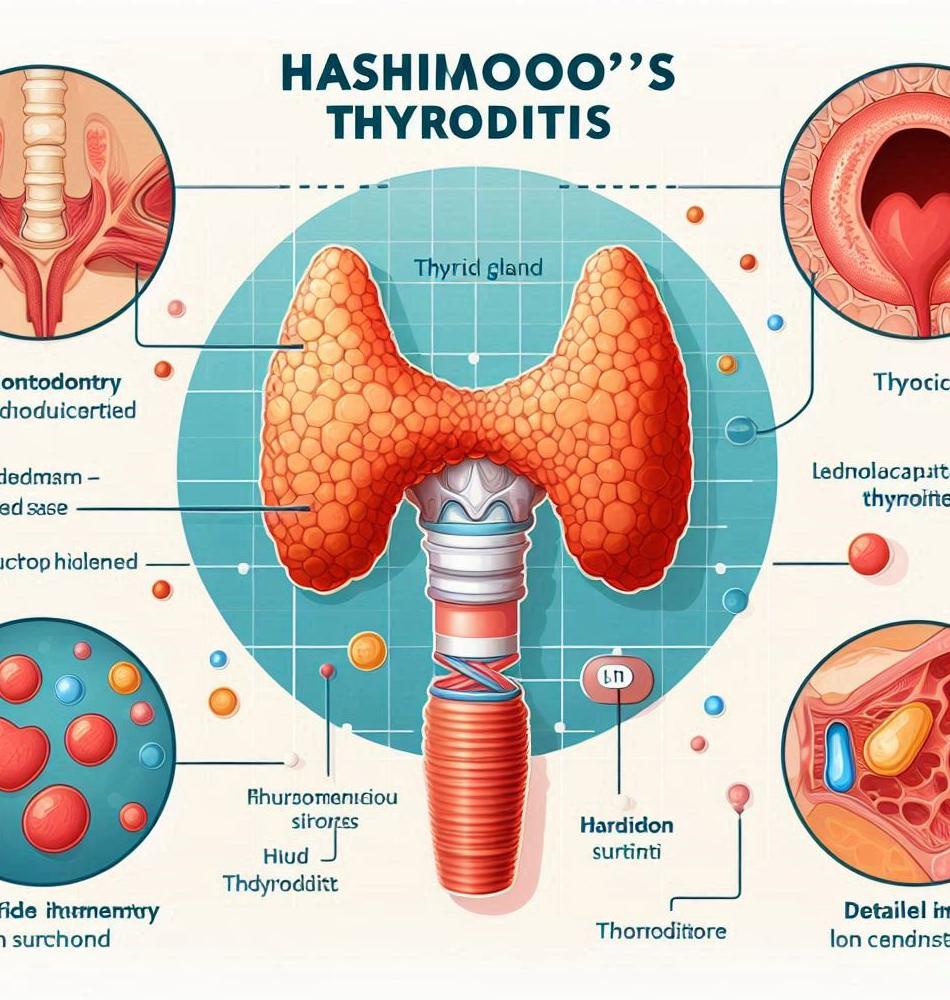Is Hashimoto's Disease Deadly? Unraveling the Myths and Realities ⚡
When it comes to health, the word "deadly" can evoke fear and trepidation. Among the countless diseases that present in our medical lexicon, Hashimoto's disease often triggers a flurry of questions and concerns. Patients and families naturally wonder about its dangers, risks, and implications. So, is Hashimoto's disease deadly? In this article, we’ll explore this autoimmune condition, its effects, and how it can be managed effectively. Buckle up as we dive deep into the intricacies of Hashimoto's disease!
Understanding Hashimoto's Disease 🔍
Hashimoto's disease, also known as Hashimoto's thyroiditis, is an autoimmune disorder that affects the thyroid gland. This small but crucial organ, located at the base of the neck, is responsible for producing hormones that regulate metabolism, energy levels, and overall bodily functions. In Hashimoto's disease, the immune system mistakenly attacks the thyroid, leading to chronic inflammation and, eventually, hypothyroidism—an underactive thyroid.
Prevalence and Demographics
Hashimoto's disease is one of the most common thyroid disorders in the world. It is estimated that between 1-2% of the population are affected, but the numbers may be higher, as many cases go undiagnosed. Interestingly, it predominantly affects women between the ages of 30 and 50, though men and children can also develop the condition.
Symptoms of Hashimoto's Disease 🤒
The symptoms of Hashimoto's disease can vary widely, ranging from mild to severe, and can develop gradually over time. Some of the most common symptoms include:
Physical Symptoms
- Fatigue- Unexplained weight gain- Sensitivity to cold- Dry skin and hair loss- Constipation- Muscle weaknessMental and Emotional Symptoms
- Depression- Anxiety- Difficulty concentrating- Memory lapsesOther Symptoms
- Swelling of the thyroid gland, known as goiter- Heavy or irregular menstrual periodsIf you are experiencing a combination of these symptoms, it is essential to consult a healthcare provider for proper diagnosis and management.
How Is Hashimoto’s Disease Diagnosed? 🔬
Diagnosing Hashimoto's disease typically involves a combination of methods, including:
- **Blood Tests**: Doctors usually test for thyroid hormone levels (TSH, T3, and T4) and antibodies (anti-TPO and anti-thyroglobulin).- **Physical Examination**: A healthcare provider may examine the neck for swelling or changes around the thyroid gland.- **Medical History**: A thorough review of personal and family medical history can provide valuable insights.Is Hashimoto's Disease Deadly? ❓
Now we come to the crux of the matter. The question on everyone's mind: is Hashimoto's disease deadly? The short answer is no. On its own, Hashimoto's disease is not considered a deadly condition. However, there are complexities to consider.
Potential Complications
While Hashimoto's disease itself does not directly cause death, it can lead to complications that can affect health. Some of the potential complications include:
- **Hypothyroidism**: An underactive thyroid can lead to severe fatigue, weight gain, and other debilitating symptoms. Long-term untreated hypothyroidism can, in rare cases, result in myxedema coma, a life-threatening emergency.- **Heart Problems**: Low thyroid hormone levels can increase the risk of heart disease and high cholesterol.- **Mental Health Impact**: Chronic fatigue and depression can significantly affect quality of life, leading to potential risks.Can Hashimoto's Lead to Cancer? ❓
A common concern among those diagnosed with Hashimoto's is whether it increases the risk of thyroid cancer. Research shows that individuals with Hashimoto's disease may have a slightly increased risk of certain types of thyroid cancer, but the overall risk remains low.
Managing Hashimoto's Disease ⚙️
Management of Hashimoto's disease primarily focuses on controlling symptoms and normalizing thyroid hormone levels. Here are some potential management strategies:
1. Medications
Levothyroxine is the most common medication prescribed to raise thyroid hormone levels effectively. Regular monitoring and dosage adjustments are key to successful treatment.
2. Regular Check-Ups
Patients should schedule regular visits with their healthcare providers to monitor thyroid function and adjust medication if necessary.
3. Lifestyle Changes
Incorporating lifestyle adjustments can complement medical management:
- Eating a balanced diet- Engaging in regular physical activity- Managing stress through relaxation techniques4. Support Groups
Joining a support group can be beneficial. Sharing experiences and tips with others who understand the condition can ease emotional burdens.
Frequently Asked Questions ❓
- What are the long-term effects of Hashimoto's disease?- Can Hashimoto's disease be cured?- How do I know if my treatment is working?- Are there dietary changes that can help?- Is there an increased risk of other autoimmune diseases?Conclusion ✔️
So, is Hashimoto's disease deadly? The answer is a reassuring no—but it comes with a caveat. While the disease itself is not life-threatening, the complications arising from untreated hypothyroidism can pose risks to health. Patients diagnosed with Hashimoto's disease should focus on proactive management strategies and stay informed about their condition.
Understanding Hashimoto's disease enables patients to take control of their health journey. So, if you or someone you know is navigating the complexities of Hashimoto's, rest easy knowing that proactive care and a positive mindset can pave the way for a fulfilling life!
.png)






